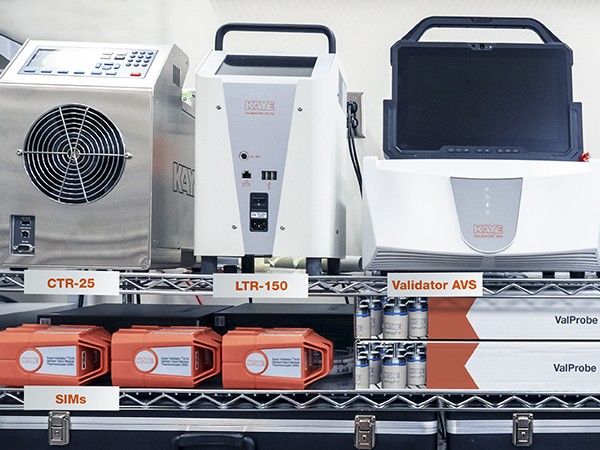In the realms of pharmaceuticals, food processing, and biotechnology, maintaining the integrity and safety of products is paramount. A key element in achieving this is the implementation of a reliable Thermal Validation System. This system ensures that critical processes meet the required temperature specifications to guarantee product safety and efficacy.
What is a Thermal Validation System?
A Thermal Validation System is a comprehensive setup used to measure, record, and analyze temperatures within controlled environments. These systems are essential in industries where precise thermal conditions are critical, such as sterilization, pasteurization, and storage.
Components of a Thermal Validation System
- Data Loggers: These devices capture temperature data at various points within the environment.
- Sensors and Probes: Placed at critical locations, these tools measure the temperature and send data to the loggers.
- Software: Specialized software analyzes the data, ensuring compliance with predefined standards.
- Calibration Equipment: Ensures the accuracy of the data loggers and sensors.
Why is Thermal Validation Important?
Thermal validation is crucial for several reasons:
- Regulatory Compliance: Industries such as pharmaceuticals and food processing are governed by strict regulations. A robust Thermal Validation System ensures compliance with these regulations, avoiding costly penalties and ensuring market access.
- Product Safety: Ensuring products are processed at the correct temperatures prevents microbial contamination and spoilage, safeguarding consumer health.
- Process Efficiency: Accurate temperature control can enhance process efficiency, reducing waste and improving product yield.
Applications of Thermal Validation Systems
Pharmaceutical Industry
In the pharmaceutical industry, maintaining the integrity of drugs during manufacturing and storage is vital. Thermal Validation Systems are used to validate sterilization processes, ensuring that autoclaves and sterilizers operate within the required temperature ranges. This guarantees that all microbial life is eradicated, ensuring the safety and efficacy of the drugs.
Food Processing
Thermal validation in food processing ensures that pasteurization and sterilization processes effectively eliminate pathogens. For instance, during the pasteurization of milk, precise temperature control is essential to destroy harmful bacteria without compromising nutritional quality. A Thermal Validation System monitors and records the temperatures, ensuring that the process meets the necessary safety standards.
Biotechnology
In biotechnology, maintaining specific temperatures during processes such as fermentation and cell culture is critical. A Thermal Validation System ensures that these processes are conducted under optimal conditions, enhancing the yield and quality of the biological products.
Key Features of an Effective Thermal Validation System
An effective Thermal Validation System should possess several key features:
- Accuracy: The system must provide precise temperature measurements to ensure compliance and product safety.
- Reliability: It should function consistently under various conditions, providing dependable data.
- Ease of Use: User-friendly interfaces and software simplify the process of data collection and analysis.
- Scalability: The system should be adaptable to different scales of operation, from small laboratories to large industrial plants.
- Compliance: It must meet industry-specific regulatory requirements, such as FDA guidelines and ISO standards.
Benefits of Implementing a Thermal Validation System
Enhanced Compliance
By implementing a robust Thermal Validation System, companies can ensure compliance with stringent regulatory requirements. This not only avoids legal issues but also builds trust with consumers and stakeholders.
Improved Product Quality
Accurate thermal validation leads to better control of manufacturing processes, resulting in higher product quality. Consistent temperature monitoring ensures that products are manufactured and stored under optimal conditions, maintaining their integrity and efficacy.
Cost Savings
Thermal validation helps in identifying inefficiencies in thermal processes, allowing for adjustments that can reduce energy consumption and waste. This leads to significant cost savings in the long run.
Data-Driven Decisions
A comprehensive Thermal Validation System provides valuable data that can be used to make informed decisions. This data can help in optimizing processes, improving product quality, and reducing costs.
Choosing the Right Thermal Validation System
Selecting the right Thermal Validation System requires careful consideration of several factors:
- Industry Requirements: Different industries have specific requirements. Ensure the system you choose meets these needs.
- System Accuracy: Verify the accuracy of the data loggers and sensors.
- User-Friendliness: The system should be easy to operate and integrate with existing processes.
- Technical Support: Opt for a provider that offers robust technical support and training.
- Scalability: Ensure the system can scale with your business needs.
Challenges in Thermal Validation
While thermal validation is crucial, it comes with its own set of challenges:
- Calibration: Regular calibration of sensors and data loggers is necessary to maintain accuracy, which can be time-consuming and costly.
- Data Management: Handling large volumes of data requires efficient data management systems.
- Environmental Variability: Factors such as humidity and air flow can affect temperature readings, requiring adjustments and compensations in the validation process.
Future Trends in Thermal Validation
The future of thermal validation is poised to be shaped by technological advancements:
- IoT Integration: The integration of Internet of Things (IoT) technology will enable real-time monitoring and control, enhancing the efficiency and accuracy of Thermal Validation Systems.
- Automation: Increased automation will reduce human error and enhance the reliability of thermal validation processes.
- Advanced Analytics: The use of advanced analytics and machine learning will provide deeper insights into thermal processes, facilitating continuous improvement.
Conclusion
A robust Thermal Validation System is indispensable in industries where temperature control is critical. It ensures regulatory compliance, product safety, and process efficiency. As technology advances, these systems will become more sophisticated, offering greater accuracy and reliability. Investing in a quality Thermal Validation System not only enhances product quality and safety but also drives cost savings and operational efficiency. Therefore, choosing the right system is crucial for any industry aiming to maintain high standards and stay competitive in the market.
